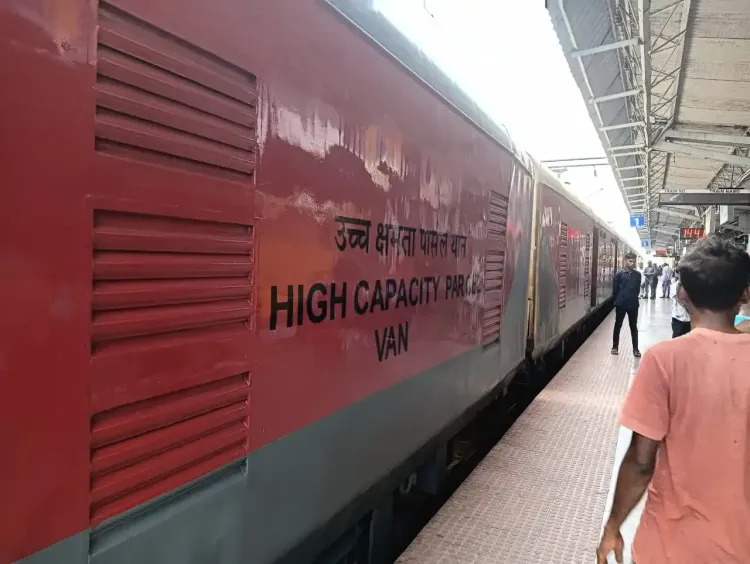How is NFR Enhancing Connectivity with Parcel Cargo Services Between Tripura and Punjab?

Synopsis
Key Takeaways
- Dedicated Parcel Cargo Train launched by NFR.
- Connects Agartala in Tripura with Sanehwal in Punjab.
- Facilitates transportation of key commodities.
- Runs 144 trips over six years.
- Initial capacity of 15 parcel vans, expanding to 20.
Guwahati/Agartala, May 5 (NationPress) The Northeast Frontier Railway (NFR) has launched a specialized Parcel Cargo Express Train (PCET) service connecting the capital of Tripura, Agartala, to Sanehwal, Punjab.
The Chief Public Relations Officer (CPRO) of NFR, Kapinjal Kishore Sharma, stated that this dedicated cargo train is designed to improve the transportation of essential goods, including rubber and pineapples, from the northeastern region to extensive markets across the country.
“This initiative will significantly enhance the trade infrastructure in the northeast and offer support to local economies,” he added.
According to the CPRO, the PCET, identified by train numbers 00832/00833, will operate twice monthly, accumulating a total of 144 round trips over a six-year timeline.
Initially, the train will feature 15 parcel vans and one brake van, with plans to expand to 20 parcel vans after six months to meet the rising demand.
This service is expected to enable prompt and efficient goods movement, diminishing transit times and providing a dependable logistics solution for regional traders and farmers.
Following a clear and competitive bidding process, AVG Logistics Ltd. has secured the lease to manage this train service.
CPRO Sharma noted that the overall contract is valued at around Rs 68.95 crore, which indicates a substantial investment in strengthening the region's supply chain capabilities.
This initiative represents a significant advancement in encouraging more local traders to engage in similar ventures using the most efficient and cost-effective freight transportation system in the country—the Railways. This development further emphasizes NFR’s dedication to promoting economic growth and enhancing connectivity in the northeast, aligning with Indian Railways' broader vision to advance parcel train services for the nation’s long-haul freight requirements, according to the NFR CPRO.
Tripura is currently cultivating natural rubber across 97,171.93 hectares, making it the second-largest rubber-producing state in India, following Kerala, with an annual production of 1,02,989 tonnes valued at Rs 1,620 crore.
The northeastern state also produces approximately 1.28 lakh tonnes of two significant pineapple varieties—Kew and Queen—across 8,800 hectares of mountainous orchards. For years, Tripura has been exporting pineapples and lemons to various countries and states in India.










